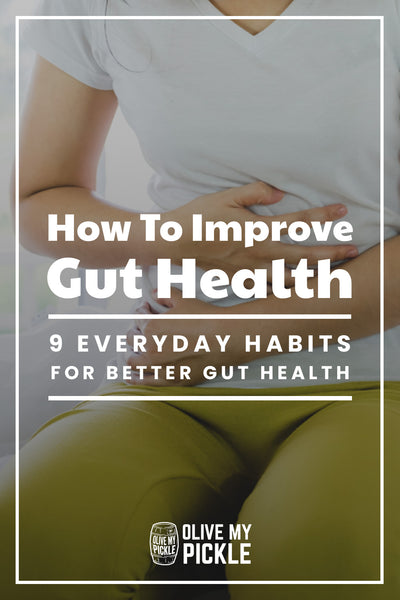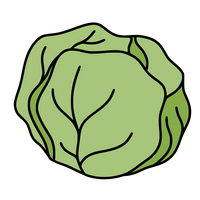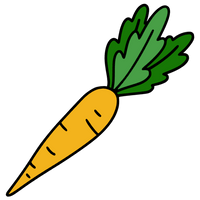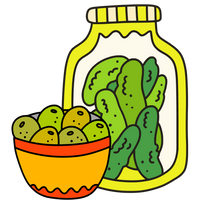
Probiotics, prebiotics, digestive enzymes… what do all these terms mean? And how can you maintain a healthy gut microbiome? In this blog post, we'll explore all things gut health and give you the tools you need to make sure your gut is running like a well-oiled machine.
Your gut is home to billions of bacteria—but don't worry, that's a good thing! These bacteria help with everything from digesting food to boosting your immune system. When your gut is healthy, you're more likely to feel energetic and lively. But when it's out of balance, you might feel bloated, fatigued, or experience other digestive issues.

So how do you improve gut health? Let's take a look.
Taking care of your gut health is vital for overall wellbeing. By eating probiotic- and prebiotic-rich foods, getting regular exercise, and getting enough sleep, you can support a healthy microbiome and enjoy all the benefits that come with it.
These are just a few topics of Gut Health Let's dive deeper.
How to Improve Gut Health: 9 Everyday Habits for Better Gut Health
If you're one of the many people looking to improve their gut bacteria and gut health, you'll be happy to know that there are some simple everyday habits that can help. From what you eat and drink, to how you sleep and exercise, small changes in your routine can make a big difference in gut health. Keep reading to learn 9 easy ways to get on track for better gut health. Click to Read More.
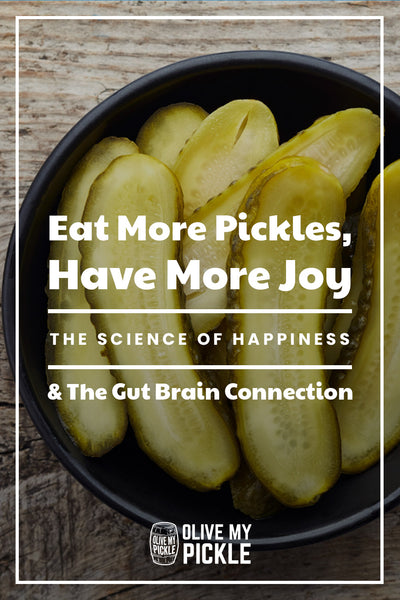
Is Gut Health Connected To Happiness?
Eat more pickles, have more joy. The science of happiness and the brain gut connection.
We all know that the way to a person's heart is through their stomach. But did you know that what you eat can also affect your mood and overall sense of well-being? That's right - the science of happiness is real, and pickles are at the center of it all.
In fact, studies have shown that gut health plays a role in everything from stress levels to how well you sleep. So if you're looking for ways to improve your overall wellbeing, it might be time to start paying attention to your gut and what you eat. Here's what you need to know about the connection between gut health and happiness. Click to Read More.
Are Probiotic Supplements Better Than Probiotic Foods?
Have you ever wondered whether popping a probiotic pill is really the best way to support your gut health? Sure, supplements have their place. But when it comes to getting a daily dose of probiotics, you might be better off reaching for food instead. Here's a look at the pros and cons of probiotic supplements versus probiotic foods.
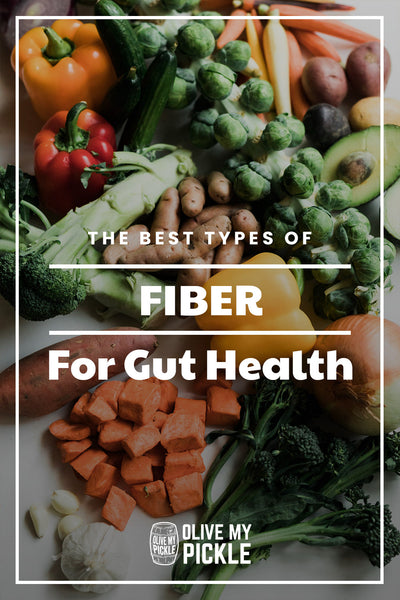
The Best Types of Fiber for Gut Health
If you're like most people, you probably think of fiber as something that's good for keeping things regular. And while that's true, fiber is actually much more complex than that. There are different types of fiber, and each one offers different gut health benefits. So if you're looking to optimize your gut health, it's important to know which type of fiber is best for you. Here's a quick guide to the different types of fiber and their gut health benefits. Click to Read More.

The Connection Between Gut Health and Sleep Quality
Did you know that gut health and sleep quality are connected? Busy health conscious people just like you are always looking for ways to improve their sleep, but they may not realize that the key could be improving their gut health. In this blog post, we'll explore the connection between gut health and sleep quality so that you can get the best of both worlds. Click to Read More.
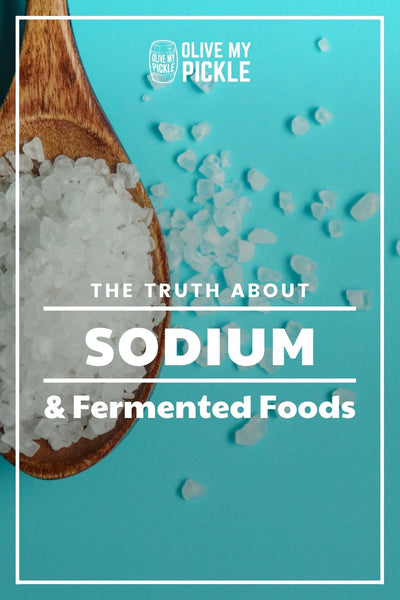
The Truth About Sodium and Fermented Foods for a Healthy Gut Bacteria
Sodium has gotten a bad rap in recent years. We're told to limit our intake, but does that mean we should avoid all sodium? Not necessarily. In fact, some experts say that certain fermented foods can actually help promote a healthy gut bacteria balance. So before you banish all things salty, read on to learn the truth about sodium and fermented foods. You might just find that they're not as bad as you thought! Click to Read More.

Why is hydration important for your gut health and gut microbiome?
Did you know that your gut health is closely linked to your hydration levels? That's right - if you're not properly hydrated, it can lead to problems with your gut microbiome. In this blog post, we'll take a look at why hydration is so important for gut health, and how you can make sure you're getting enough fluids every day. So whether you're trying to improve your gut health or just want to stay healthy and hydrated, read on! Click to Read More.

Money Saving Tips on Eating Healthy for Your Gut Health
With the rising cost of food, and the quick convenience of processed foods, it can be difficult to know how to save money and eat healthy. However, eating healthy doesn't have to be expensive or time-consuming. Here are a few tips on how you can save money and eat healthy for your gut health. Click to Read More.
So, what have we learned about gut health and it's beneficial bacteria?
First and foremost, the gut is responsible for digesting food and extracting nutrients to fuel the body. It’s also home to billions of bacteria that play a role in everything from immune system function to mental health. Maintaining a healthy gut requires feeding your good bacteria with plenty of fiber-rich foods as well as probiotics, while avoiding processed foods and other toxins. Fermented foods are an especially important source of probiotics, so be sure to add them to your diet!
